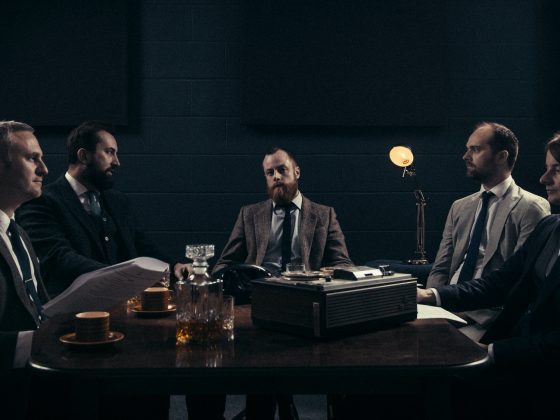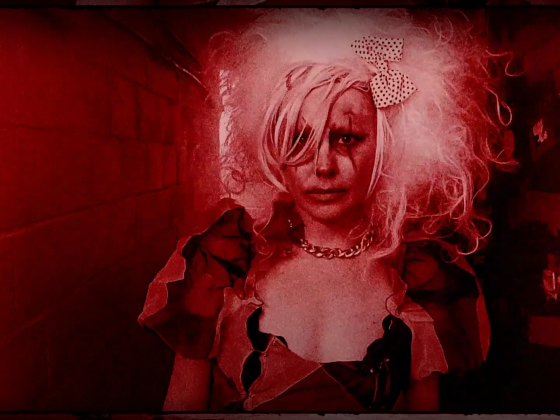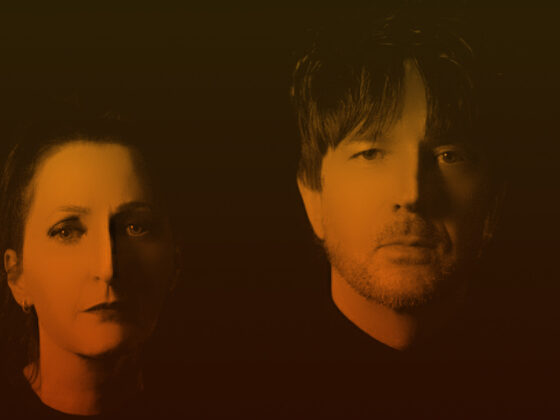Electronic music pioneer, Florian Schneider, co-founder of German synth pioneers Kraftwerk, has died at the age of 73.
“Kraftwerk co-founder and electro pioneer Ralf Hütter has sent us the very sad news that his friend and companion over many decades Florian Schneider has passed away from a short cancer disease just a few days after his 73rd birthday,” the band said in a statement provided by publicist Alexandra Greenberg.
Reports of his passing came initially Wednesday afternoon via friends and colleagues in the German music industry, such as Berlin Factory Records ex-pat, Mark Reeder, and DAF’s Robert Görl.
Schneider’s father, Paul Schneider-Esleben, is credited as a highly influential figure in the post-World War II modernist architectural movement in Germany. In 1946, Schneider-Esleben defied his Nazi father by marrying Evamaria van Diemen-Meyerhof, a half-Jewish writer. Their son Florian was born 7 April 1947 in Öhningen, Germany.
Florian Schneider grew up in the shadow of the second World War, in a deeply scarred nation desperately seeking regeneration and aesthetic rebirth. His father’s ties to architectural titans such as Walter Gropius and Ludwig Mies van der Rohe, performance artist Joseph Beuys, and minimalist ZERO group members Heinz Mack, Otto Piene and Günther Uecker proved formative to the young Schneider’s artistic and political sensibilities. In Pascal Bussy’s Kraftwerk: Man, Machine and Music, Schneider noted that his biggest childhood musical influences came from American tunes played by Allied troops still stationed in Düsseldorf, as well as his parents’ record collection, which included musique concrete artist Pierre Henry.
Scheider then went on to study flute at the Düsseldorf Conservatory, where he would meet his Kraftwerk partner Ralf Hütter. With the freedom to explore and taking cues from influences such as Karlheinz Stockhausen, Italian composer Russolo, James Brown, punk, Iggy Pop, and New York’s Fluxus movement, the friends all but abandoned their classical training to experiment with blossoming electronic technology, forging an entirely new sound and identity for themselves. By 1968, they began performing in a collective called Organisation, which combined their experimental sound, the spirit of rock n’ roll, and elements of performance art.
In 1970, after acquiring a synthesizer and catching an exhibit by British artists Gilbert and George, Schneider and Hütter started their next project, Kraftwerk. In 1974 the group finally hit the mainstream with the groundbreaking Autobahn. Hütter and Schneider had invested in newer technology, helping give Kraftwerk a newer, “disciplined” sound. From there, Kraftwerk skyrocketed into the zeitgeist, releasing Trans-Europe Express, The Man-Machine, and Computer World. They were influenced by the Bauhaus aesthetic: art as inseparable from everyday function. The band celebrated, yet warned of, the modern world with their minimalist song structure and sense of alienation existing in conjunction with the joys of modern technology.
Kraftwerk also knew appeal of reclusivity and anonymity, preferring to substitute band members in photoshoots with robots and mannequins, refusing to tour, and giving rare and enigmatic interviews. Even heavy-hitters like David Bowie found their walls difficult to climb, but nevertheless was heavily influenced by Kraftwerk’s sound by the late 1970s, and titled his “Heroes” instrumental track “V-2 Schneider” after Schneider.
Their influence is astronomical. “Kraftwerk are to contemporary electronic music what the Beatles and the Rolling Stones are to contemporary rock music.” Moby once said to the New York Times. The most groundbreaking influence the band had, if indirectly, was the sequence recreation of Trans-Europe Express in 1982’s Planet Rock (later subject of an equally groundbreaking lawsuit), which ultimately birthed the sound of electro and hip-hop. As influenced by hundreds of sources as Kraftwerk was, they in turn influenced thousands more.
Schneider left Kraftwerk in 2008, after going in a different direction: focusing on sound design and vocoding speech-synthesis.
Read some of the many touching tributes to Florian below:
We are absolutely devastated to learn that one of our heroes Florian Schneider has passed away. pic.twitter.com/Y2dnYfxkj8
— Orchestral Manoeuvres in the Dark (@OfficialOMD) May 6, 2020
The Future, The Human League, B.E.F. and Heaven 17 would never have existed without Florian Schneider and Kraftwerk
— martyn ware (@martynware) May 6, 2020
RIP Florian Schneider co founder of Kraftwerk. EVERY modern musician owes something to this mans vision. I was lucky enough to see him with Kraftwerk, with my son Gray some years ago. A magical experience.Thank you Florian.
— Lol Tolhurst (@LolTolhurst) May 6, 2020
Florian Schneider will forever be an inspiration to the world of electronic music. His artistry has been influential to creatives for the last 50 years. Today, we thank and honor him for helping to guide and shape our community through sound, imagination, and innovation. pic.twitter.com/wrq4nB4icz
— Moog Synthesizers (@moogmusicinc) May 6, 2020
RIP Florian Schneider. This is what true innovation sounds like. https://t.co/KrX7fmZ8RA
— Gary Numan (@numanofficial) May 6, 2020
Nick on the passing of @kraftwerk’s Florian Schneider https://t.co/IdU2f5gdwh pic.twitter.com/zktzC4Gj55
— Duran Duran (@duranduran) May 6, 2020
We are absolutely gutted to hear about the passing of @kraftwerk Co-founder, Florian Schneider, due to cancer. He was 73 years old. Florian, while being a part of Kraftwerk, helped shape electronic music & its influence on many genres from synthpop to rock. pic.twitter.com/tSrmnOgMQl
— KORG USA (@KorgUSA) May 6, 2020
Cover photo by Philippe Carly















 Or via:
Or via: